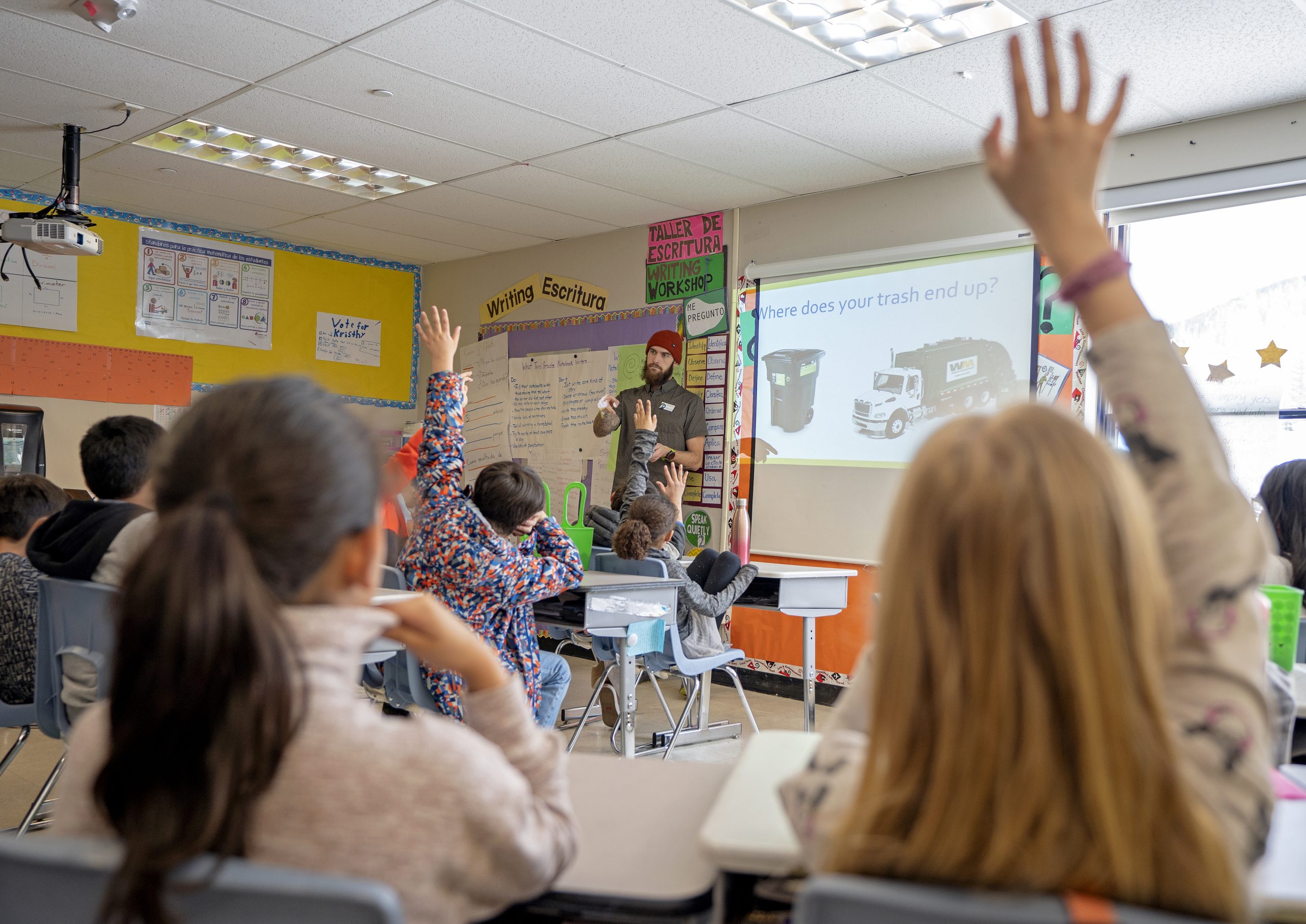
- Vitalii Homon
- September 6, 2021
- Ask Eartha
Dear Eartha, recent news about climate change has got me thinking about my role as a parent and how to teach my kids about environmental stewardship. How can Summit County youth learn more about climate change without being totally overwhelmed?
As a parent, it can be daunting to hear alarming news about the unexpected pace of climate change and the impacts it will have on our kids’ futures. And while the children of today don’t share blame for the activities that have led us to this point, we should nevertheless educate and prepare them for a changing future…this is the world they’re inheriting after all. Thankfully, there are resources on how to talk to kids about climate change and local programs that encourage students in our schools to learn about and take action on conservation issues.
How to talk to kids about climate change
Kids are incredibly intuitive – you may not think they’re listening when in fact they are. For example, my five-year-old niece overheard me talking about the growing concern of drought and wildfires and then drew me a picture of a burning forest – yikes. So how can we engage children in this conversation without overwhelming them? NPR has a great article outlining advice for talking to your kids about climate change. Here are some highlights:
- Break the silence: It can be emotional and frightening – for children and adults – to hear about and digest climate news. The first step in addressing this topic with kids is to simply talk about it. Discuss how you’re feeling and encourage your kids to do the same.
- Provide basic facts: It’s important that kids understand why climate change is occurring. Talking to them about how human actions influence the environment is a great starting point (for example, driving to school, using energy at home, etc.) Try to keep it basic and avoid getting too graphic.
- Get outdoors: Spend time with your kids outdoors to foster a positive relationship with the natural
environment. Making this connection will help them appreciate the importance of protecting it. Whether it’s walking in the forest or simply observing insects on the sidewalk, any amount of engagement will help connect them to their surroundings. - Take action: Participate in town clean up days, volunteer at local trail-building or waste reductions events, or help them write a letter to your local town council about an environmental issue important to them. These are just a few ideas to help your kids engage in climate action – ask them what they’re passionate about and go from there.
- Find hope: Let kids know they are not alone in how they feel about a changing climate. And talk about the benefits of a sustainable future such as cleaner air, healthier communities, and a stronger economy.
Local Climate Education Programs
When it comes to nurturing environmental stewardship – you’re not alone. To foster future environmental leaders, High Country Conservation Center (HC3) provides in-school conservation programming to local students to teach Summit’s younger generation how to save energy and water, fight climate change, and recycle right. What are they learning?
- Rocky’s Recyclers: This program teaches 3rd grade students where our household stuff comes from, what happens when it’s thrown away, and how to recycle and compost at school and at home.
- Energy Explorers: 4th and 8th grade students focus on energy efficiency, energy conservation, renewable energy, and how energy use can contribute to – or be a solution to – climate change.
- Water Warriors: This class teaches 7th grade students just how little of Earth’s water is available for humans to use (only .003 percent!) and dives deep into local watersheds, the Colorado River, and the impacts climate change has on our water supply.
- Composting in the Schools: If you don’t already compost at home, your elementary school or middle-school aged progeny might start asking you why…because they do it at school! With HC3’s Composting in the Schools program, local students practice expert waste diversion practices by composting their lunchtime leftovers. Not composting at home yet? It’s free and easy to sign-up for HC3’s food-scrap drop off program!
Youth today are the leaders of the future – let’s support and empower them to make positive environmental change at home and in our communities.
